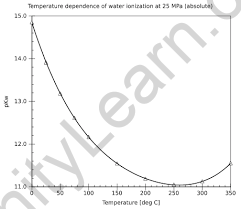Table of Contents
Strong and Weak Acids and Acid Ionization Constant
An acid is a molecule or ion that donates a proton to another molecule or ion. In water, acids dissociate into hydrogen ions (H+) and the corresponding anion. The dissociation of an acid into H+ and the anion is called acid ionization. The strength of an acid is determined by its acid ionization constant (Ka), which is a measure of the propensity of the acid to donate protons. The higher the Ka value, the stronger the acid.
Weak acids have Ka values that are less than 1.0. These acids donate protons only slowly and do not completely dissociate in water. As a result, they do not produce a lot of H+ ions in water and are therefore considered weak acids. Strong acids have Ka values that are greater than 1.0. These acids donate protons rapidly and completely dissociate in water. As a result, they produce a lot of H+ ions in water and are considered strong acids.
The acid ionization constant can be used to calculate the concentration of H+ ions in a solution of an acid. The equation for calculating the H+ ion concentration is:
[H+] = Ka × [acid]In this equation, [acid] is the concentration of the acid in molarity (M). Ka is the acid ionization constant in units of concentration (M-1).
Ka, the Acid Ionization Constant
The ionization for a general weak acid, HA, is as follows:
HA(aq)→ H+ (aq) + A–(aq)
Because the acid is weak, it is possible to write an equilibrium equation. The equilibrium constant for the ionization of an acid is the acid ionization constant (Ka).
Ka=[H+][A–]/[HA]
The acid ionization is the percentage of the original acid that has been ionized in solution. As a result, the numerical value of Ka reflects the acid’s strength. Weak acids with higher Ka values are stronger than weak acids with lower Ka values.
Strong and Weak Bases and Base Ionization Constant, Kb
A base is a substance that can accept a proton (H+) in order to form a hydroxide ion (OH-). A strong base is a base that is very effective in accepting protons. A weak base is a base that is not very effective in accepting protons. The base ionization constant, Kb, is a measure of a base’s strength. It is the equilibrium constant for the reaction
H+ + B → HB+
The stronger the base, the larger the base ionization constant, K
Kb, the Base Ionization Constant
NH3(aq)+ H2O(l) →NH+4(aq) + OH–(aq)
For the reactions of weak bases with water, an equilibrium equation may be developed. Water is not included in the expression since its concentration is exceedingly high and nearly constant. The equilibrium constant for the ionization of a base is known as the base ionization constant (Kb). The phrase for ammonia is:
Kb=[NH+4][OH–]/[NH3]
Weak bases with higher Kb values are stronger than weak bases with lower Kb values.

FAQs
What occurs when acids and bases combine to form ions?
Acids, according to Arrhenius's theory, are electrolytes that ionize in an aqueous medium to produce hydrogen ions, H+ (aq). Bases, on the other hand, are electrolytes that produce hydroxyl ions, OH(aq), in an aqueous media.
How can you determine if something has entirely ionized?
The degree of ionization value indicates whether or not the substance is totally ionized. The ratio of the number of molecules undergoing dissociation to the total number of molecules is referred to as the degree of ionization. When the degree of dissociation value is 1, the molecule is totally ionized.






